Mother Teresa declared saint by Pope Francis at Vatican
- Published
As the Pope declared Mother Teresa a saint, cheers rang out from the crowd of thousands in St Peter's Square
Mother Teresa, revered for her work with the poor in India, has been proclaimed a saint by Pope Francis in a ceremony at the Vatican.
Francis said St Teresa had defended the unborn, sick and abandoned, and had shamed world leaders for the "crimes of poverty they themselves created".
Tens of thousands of pilgrims attended the canonisation in St Peter's Square.
Two apparent cures of sick people after Mother Teresa's death in 1997 have been attributed to her intercession.
In India, a special Mass was celebrated at the Missionaries of Charity, the order she founded in Kolkata (Calcutta).
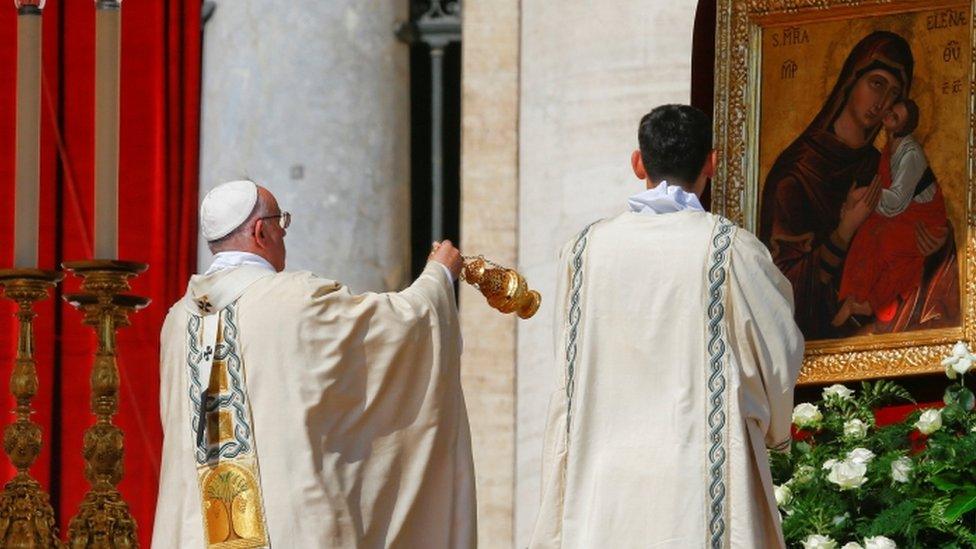
Pope Francis led the canonisation ceremony
Cardinal Angelo Amato read a brief biography of Mother Teresa's work, then asked the Pope to canonise her in the name of the Church.
Pope Francis responded: "We declare and define Blessed Teresa of Calcutta to be a saint and we enrol her among the saints, decreeing that she is to be venerated as such by the whole Church."
The Pope said Mother Teresa had spent her life "bowing down before those who were spent, left to die on the side of the road, seeing in them their God-given dignity".
He added: "She made her voice heard before the powers of the world, so that they might recognise their guilt for the crimes of poverty they themselves created." He then repeated: "The crimes of poverty they themselves created."


Shining a light: Analysis by BBC's Caroline Wyatt
Despite the intense heat, the atmosphere among the pilgrims in St Peter's Square was one of joy, and the service a celebration of the life of this extraordinary woman.
Teresa was born an ethnic Albanian, and the Albanian flag was much in evidence, as was the distinctive white habit, trimmed with blue stripes, worn by the nuns of her order, the Missionaries of Charity.
In his homily of St Teresa's work, Pope Francis said she had shone a light in the darkness of the many who no longer had tears to shed for their poverty and suffering. It was clear that her life reflected the kind of Church that this Pope is trying to build: one that shows mercy to all and offers practical help for the poorest and for all those in need.
Although critics have sought to portray St Teresa as a sinner and a hypocrite, her supporters have been just as vocal in her defence, challenging those critics to live their lives the way St Teresa did, before they cast the first stone.

Hundreds of Missionaries of Charity sisters attended the event, along with 13 heads of state or government.
Some 1,500 homeless people across Italy were also brought to Rome in buses to be given seats of honour at the celebration - and then a pizza lunch served by 250 nuns and priests of the Sisters of Charity order.
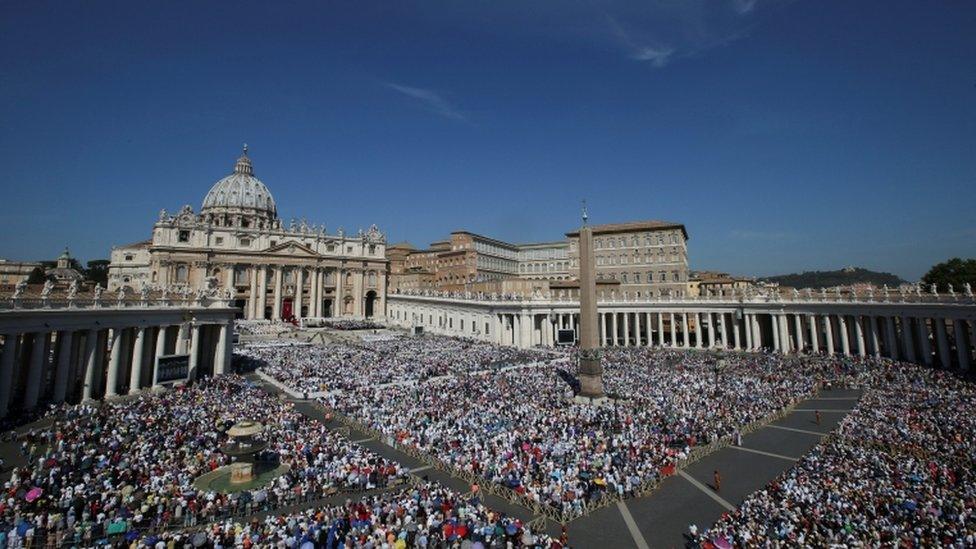
Tens of thousands attended in St Peter's Square
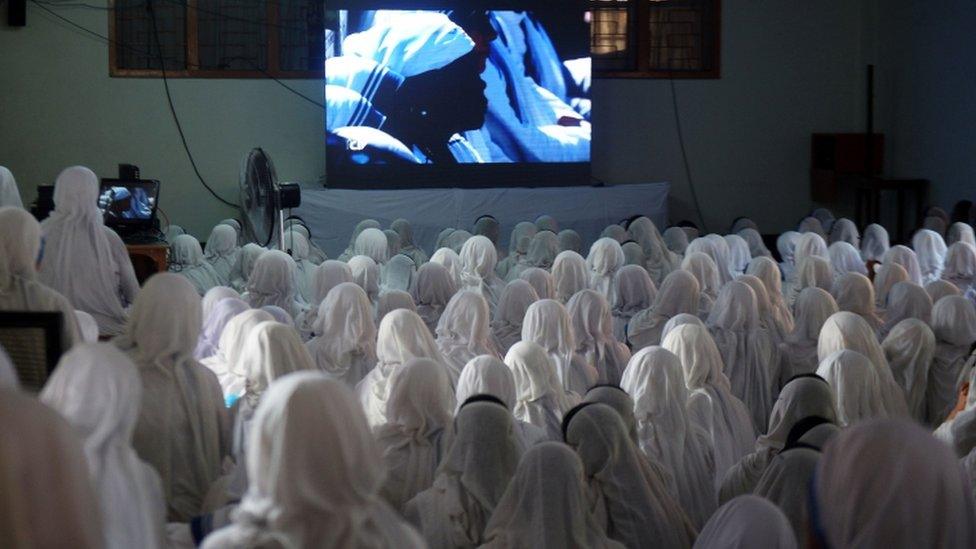
Nuns at the Mother House in Kolkata watch the ceremony
One pilgrim, Charlotte Samba from Gabon, told Associated Press: "Her heart, she gave it to the world. Mercy, forgiveness, good works. It is the heart of a mother for the poor."
Large TV screens were set up at Mother House in Kolkata for the Vatican ceremony.
Worldwide acclaim
Mother Teresa founded a sisterhood that runs 19 homes, and won the Nobel Peace Prize.
But she was not without her critics, as some people noted a lack of hygiene in the hospitals run by her sisterhood, and said she accepted money from dictators for her charity work.
Who was Mother Teresa?
She died in 1997 - aged 87 - and was beatified in 2003, the first step to sainthood.
In 2002, the Vatican ruled that an Indian woman's stomach tumour had been miraculously cured after prayers to Mother Teresa, despite the doubts of her husband.
Pope Francis cleared the way for sainthood last year when he recognised a second miracle attributed to her.
Her work complements Francis' vision of a Church that serves the underprivileged.
Her canonisation is a centrepiece of his Jubilee Year of Mercy.
A woman who said she experienced Mother Teresa's first "miracle" describes what happened
Born in 1910 to ethnic Albanian parents, Agnese Gonxha Bojaxhiu grew up in what is now the Macedonian capital, Skopje, but was then part of the Ottoman Empire.
Aged 19, she joined the Irish order of Loreto and in 1929 was sent to India, where she taught at a school in Darjeeling under the name of Therese.
In 1946, she moved to Kolkata to help the destitute and, after a decade, set up a hospice and a home for abandoned children.
She founded the Missionaries of Charity in 1950. The sisterhood now has 4,500 nuns worldwide.
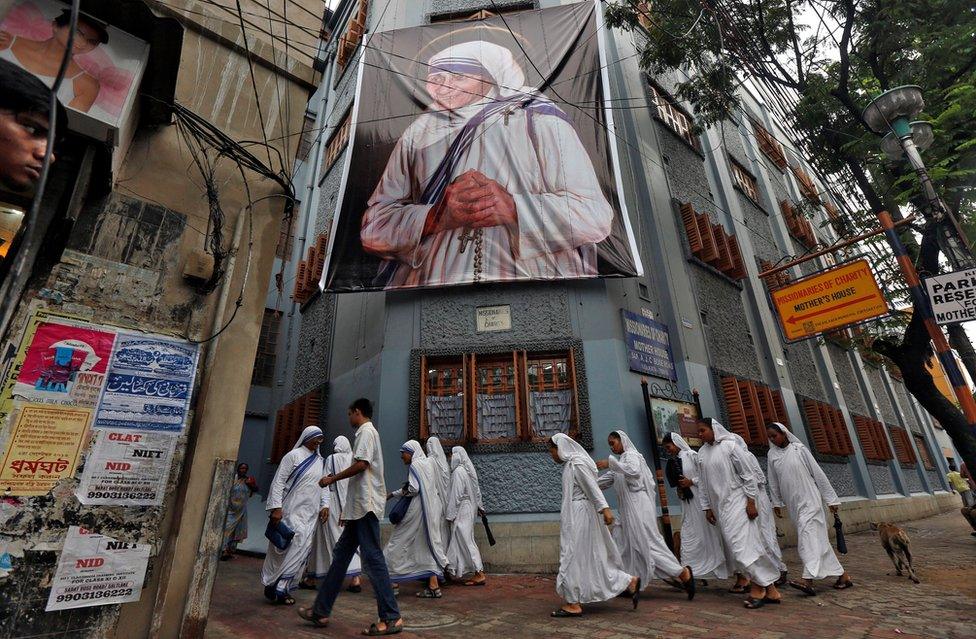
Nuns belonging to the Missionaries of Charity order are still active in Kolkata
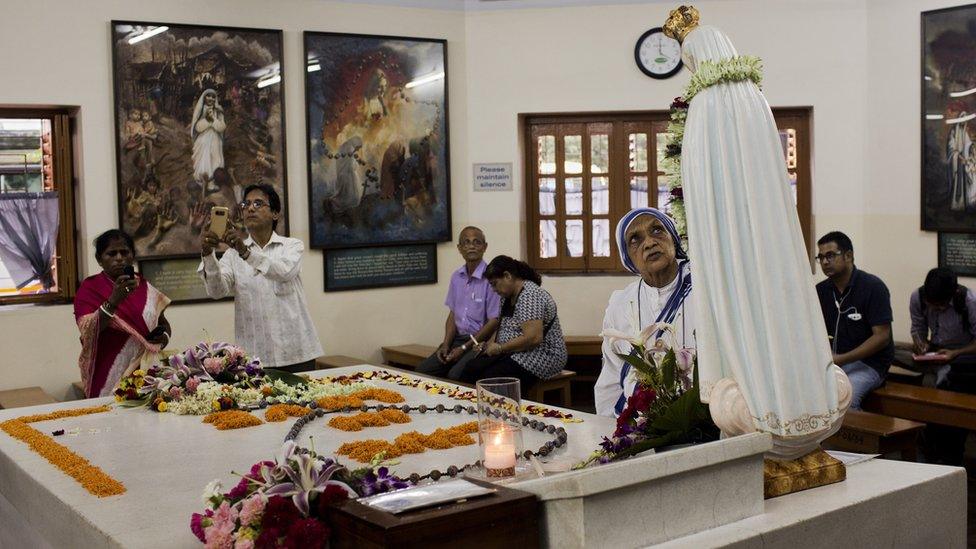
Mother Teresa is buried in Kolkata and people can visit her tomb
She achieved worldwide acclaim for her work in Kolkata's slums, but her critics accused her of pushing a hardline Catholicism, mixing with dictators and accepting funds from them for her charity.
It often takes decades for people to reach sainthood after their death, but beatification was rushed through by Pope John Paul II.
- Published10 March 2016
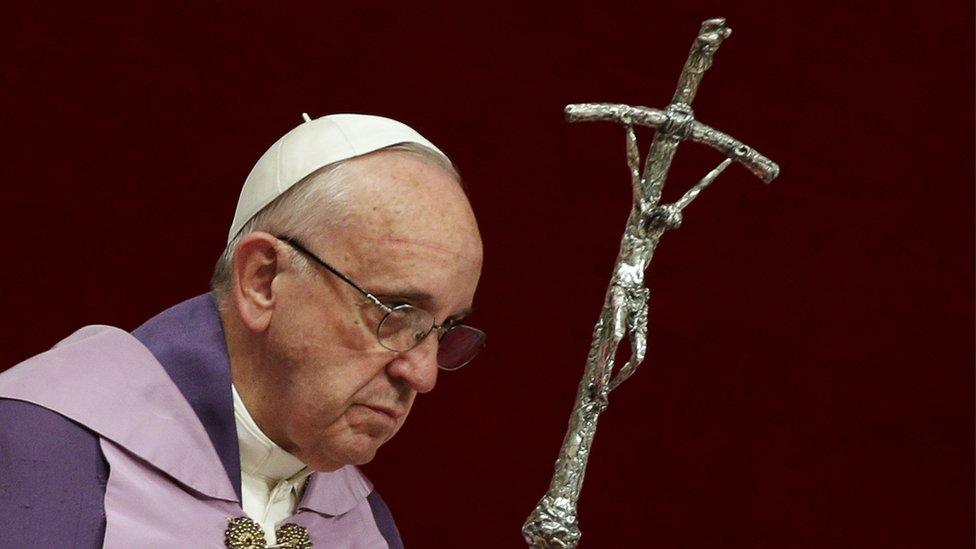
- Published27 April 2014
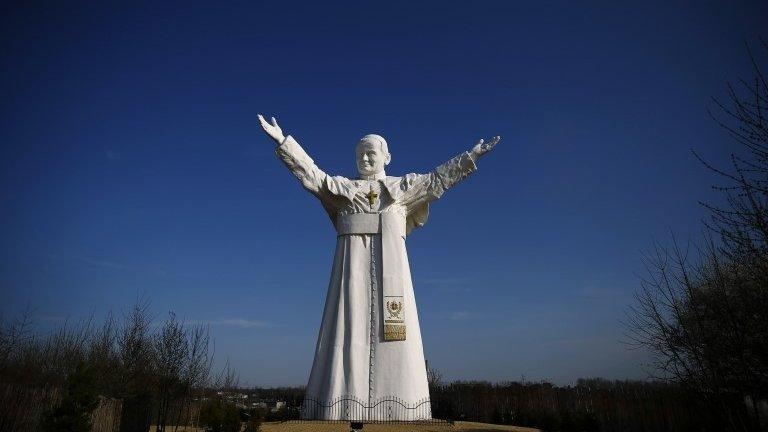
- Published15 March 2016
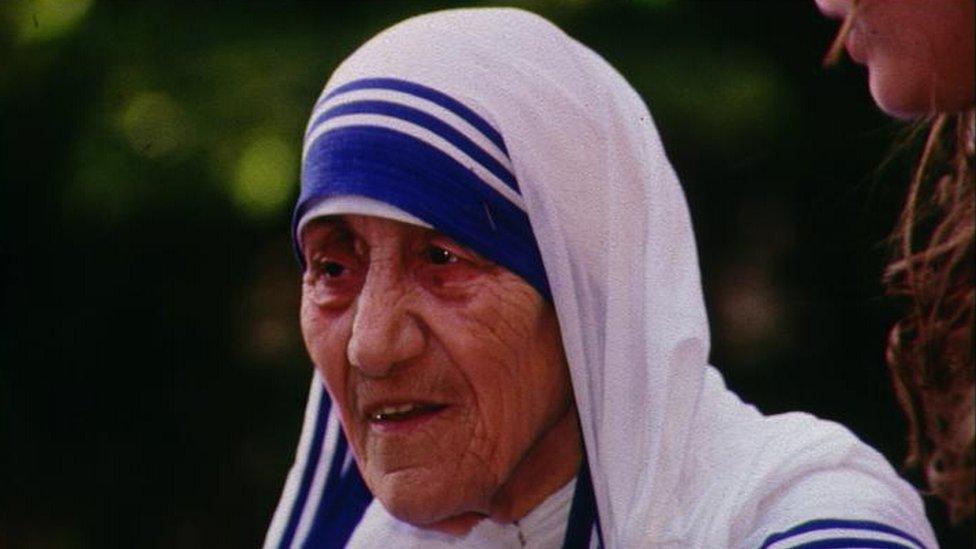
- Published4 September 2016
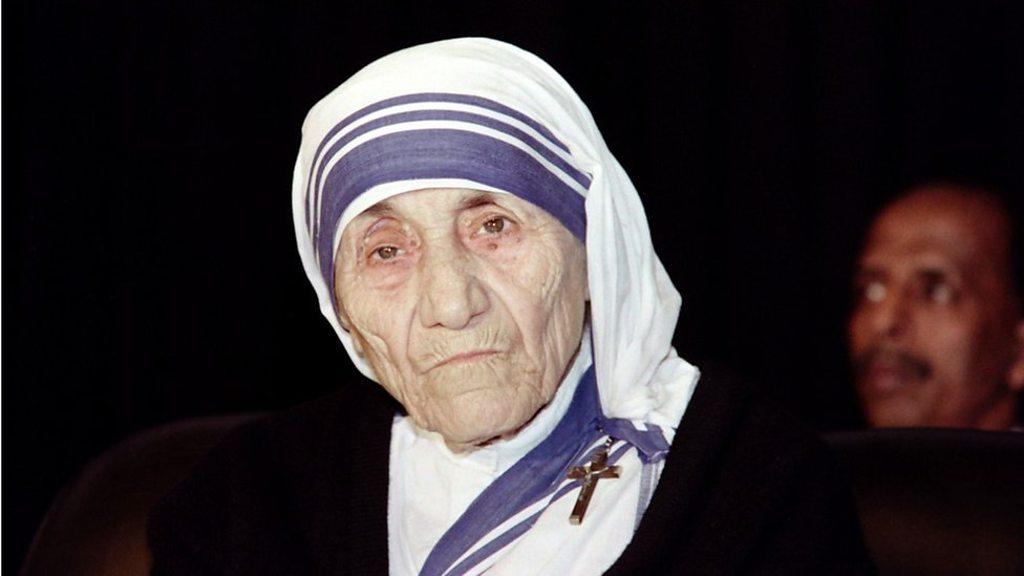
- Published3 September 2016
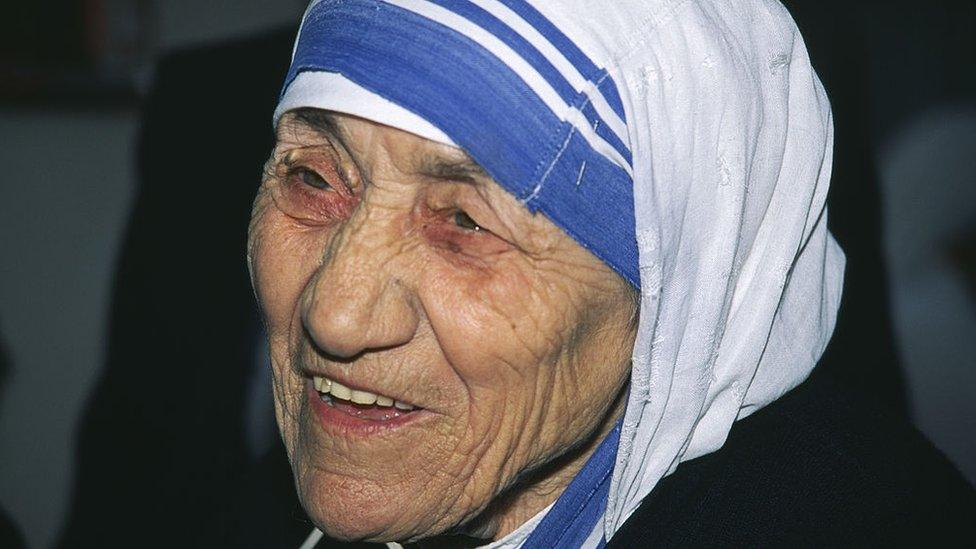
- Published2 September 2016